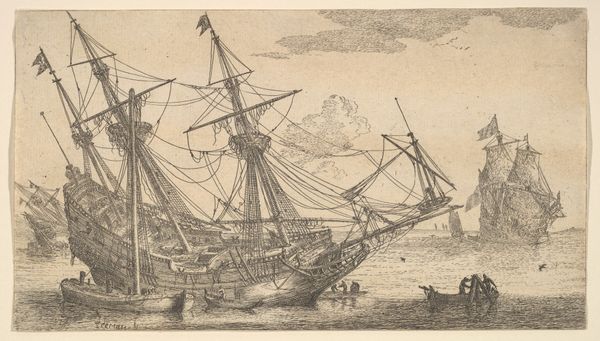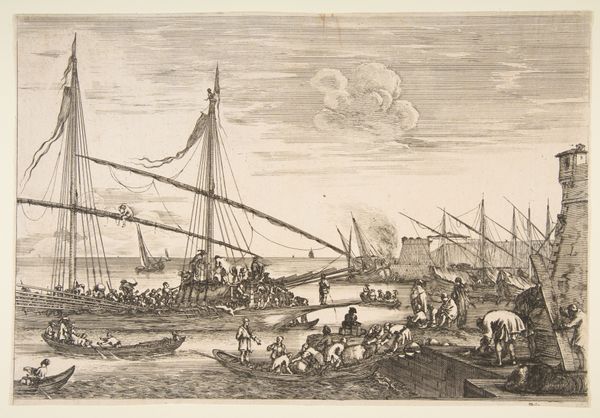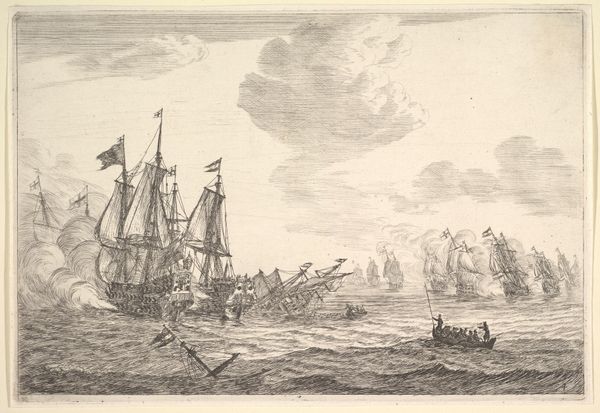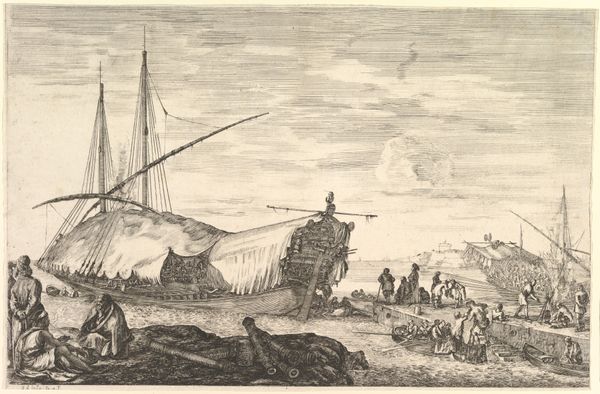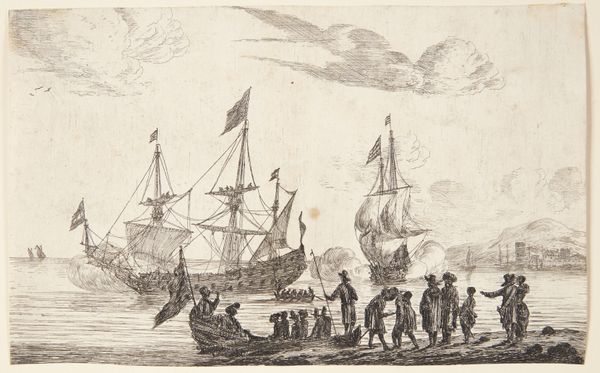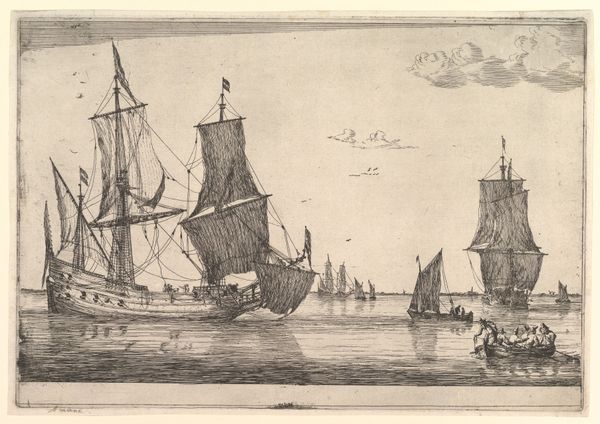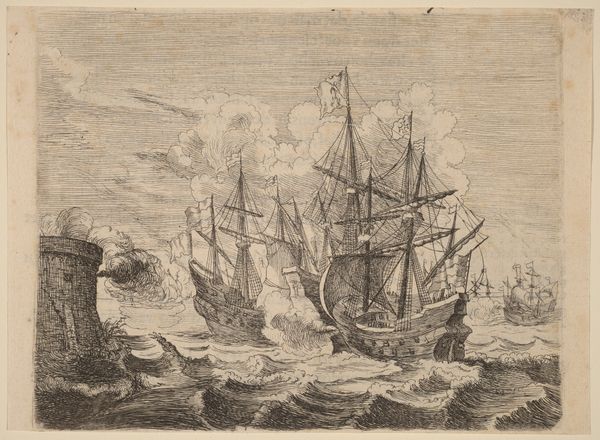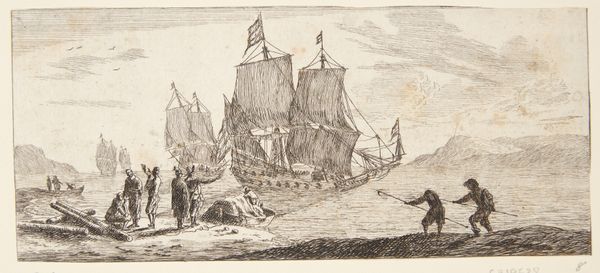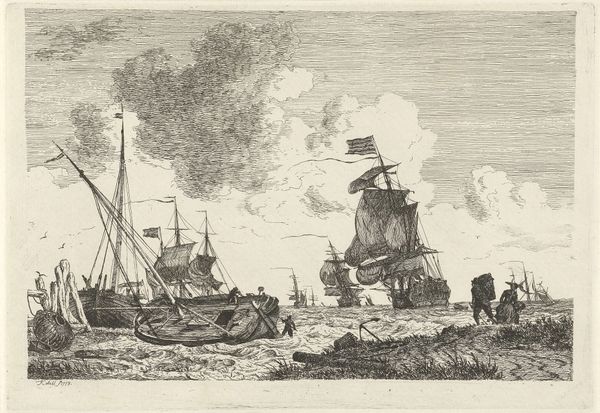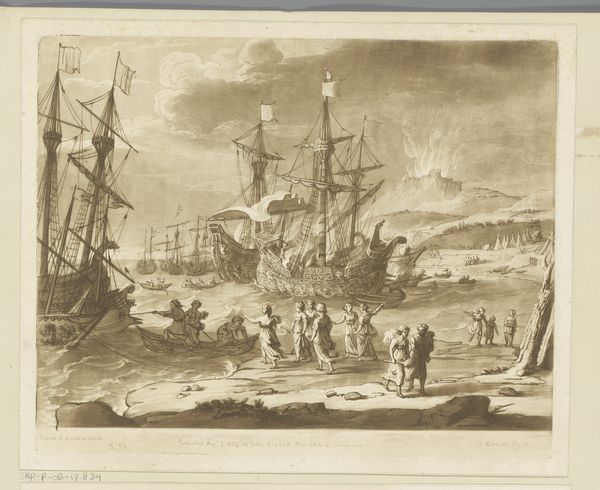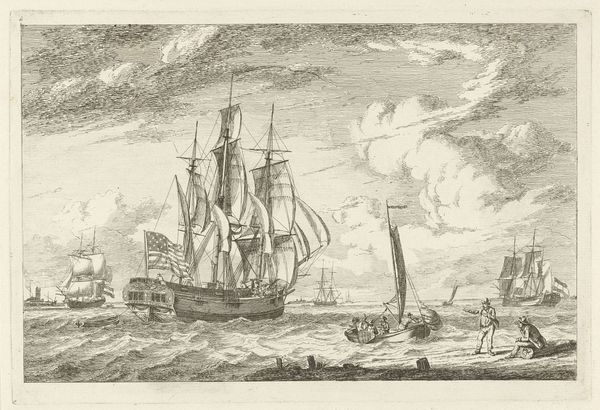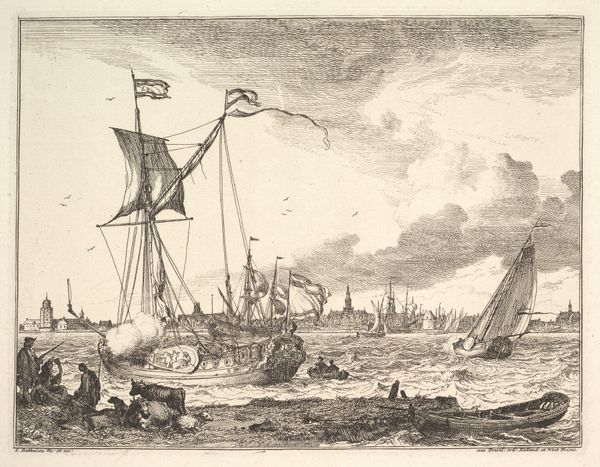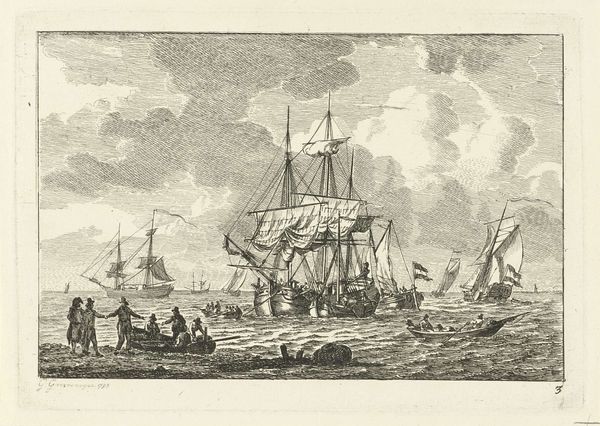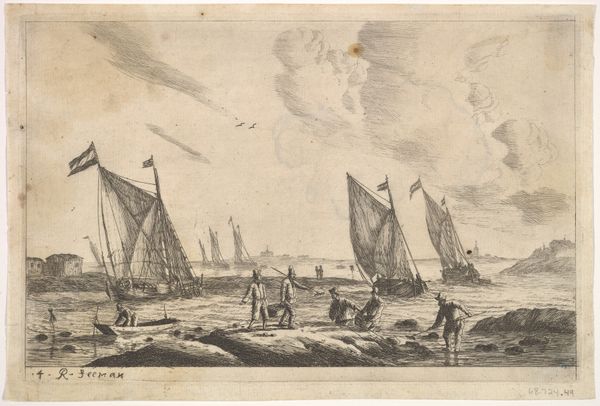
View of a part of Calais (Veue d'un coin de Calais), a man sitting on an overturned canoe on the pier in center, men cooking over a fire to left, various figures and two ships docked in the background, from 'Views of seaports' (Vues de ports de mar) 1647
0:00
0:00
drawing, print, etching, engraving
#
drawing
#
boat
#
baroque
#
ship
# print
#
pen sketch
#
etching
#
landscape
#
men
#
cityscape
#
engraving
Dimensions: Sheet: 3 7/16 x 5 3/8 in. (8.8 x 13.7 cm)
Copyright: Public Domain
Curator: It looks so... lived-in. Not a glamorous seascape at all. Almost a mundane, everyday scene down by the docks. Editor: Indeed. Here we have Stefano della Bella's "View of a part of Calais" from 1647, rendered with etching and engraving. Observe how the linear precision defines the forms, adhering to Baroque principles of clarity, yet edging towards naturalism through its unidealized depiction of daily life. Curator: Naturalism... I just see folks huddled around a fire, maybe cooking up something for dinner? Someone's casually lounging on an overturned canoe. It feels incredibly... real. Did many artists focus on stuff like this back then? Not so much the grand ships or conquering armies but more the dinner time hustle? Editor: The brilliance here resides in the fusion of technique and subject. Consider the deployment of perspective: the ships receding into depth, countered by the immediate foreground activity. This reinforces a semiotic binary—distant power versus proximate humanity. Moreover, the city walls, depicted in a rather architecturally sound way, represent order but, really, merely enclose this more organic bustle. Curator: Oh! So the strong linear detail captures all this ordinary business around the port – it contrasts with the rigid orderliness that the city fathers are aiming for! I was caught up in the "lived-in-ness," but the sharp rendering must mean something, like how life is playing out, quite determinedly. So would you say della Bella isn’t just recording a slice of life, he’s… framing a narrative? Editor: Precisely! The artist juxtaposes individual enterprise and collective purpose; an investigation into society, using formal elements. It goes deeper than topography. He gives form to cultural discourse and makes acute, almost subversive, commentaries about daily life with his lines. Curator: Makes you think twice about these seemingly simple scenes, doesn't it? This isn't just some old view; it's an active observation about the ways of living in the old world. Editor: Yes, and how insightful it is to reconsider the balance between human form and setting, how they're framed with shape and value: this remains as incisive today.
Comments
No comments
Be the first to comment and join the conversation on the ultimate creative platform.
